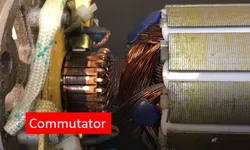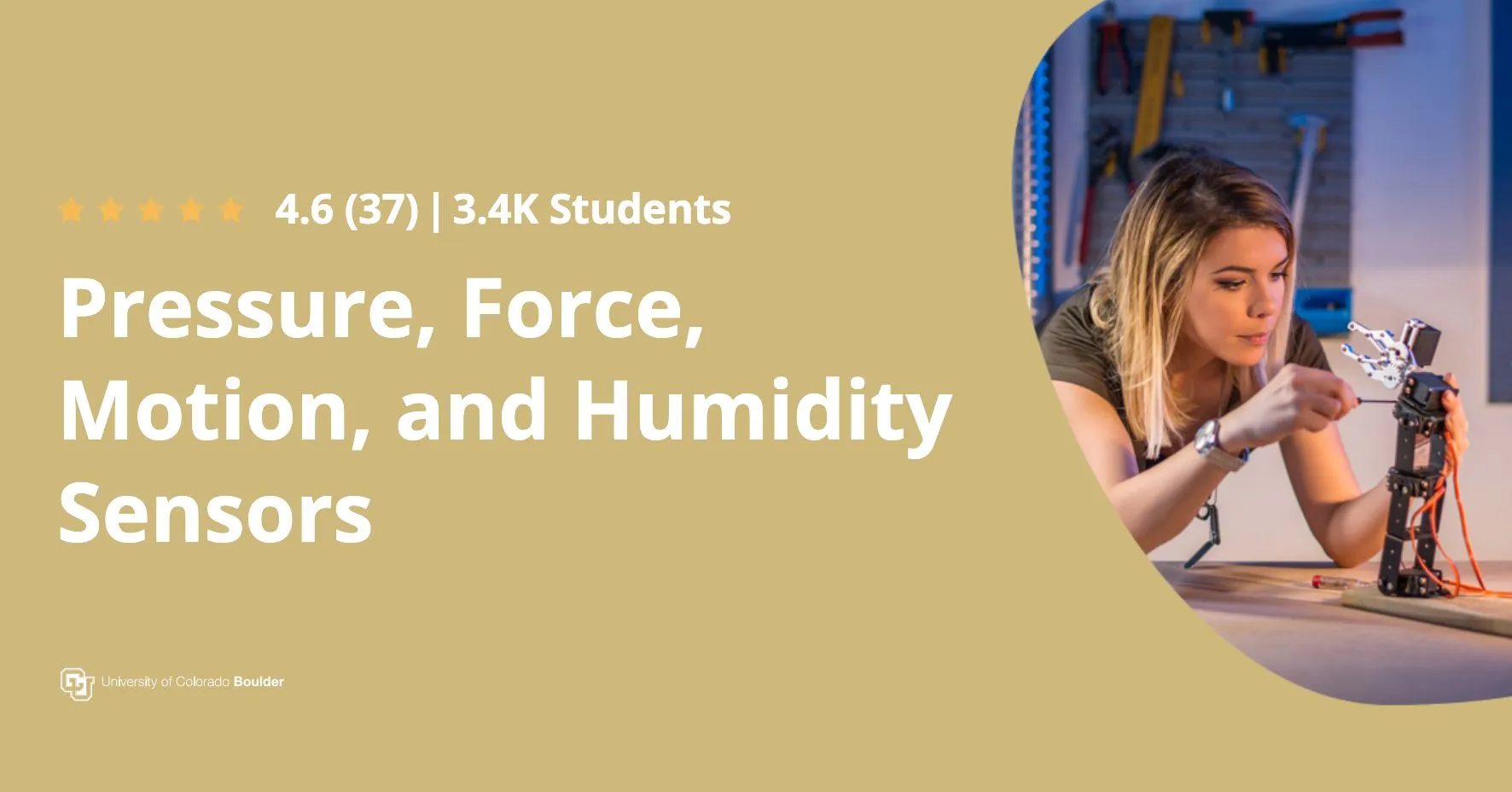
Motors and Motor Control Circuits 
This course provides an introduction to motors and motor control circuits, covering topics such as DC motors, AC motors, and motor control systems. It is designed for students pursuing a Master of Science in Electrical Engineering at CU Boulder, and can be taken for academic credit as ECEA 5341. ▼
ADVERTISEMENT
Course Feature
![]() Cost:
Cost:
Free
![]() Provider:
Provider:
Coursera
![]() Certificate:
Certificate:
No Information
![]() Language:
Language:
English
![]() Start Date:
Start Date:
Self Paced
Course Overview
❗The content presented here is sourced directly from Coursera platform. For comprehensive course details, including enrollment information, simply click on the 'Go to class' link on our website.
Updated in [March 06th, 2023]
This course provides an overview of motors and motor control circuits. Students will learn how to specify the proper AC or DC motor for a machine design, integrate the motor to a machine, and implement the motor and accompanying rotary sensor into a motor control circuit in both hardware and software. Additionally, students will add a motor and motor control circuit into a microprocessor based development kit and create hardware and firmware to process motor feedback data to a microprocessor for further evaluation.
[Applications]
After completing this course, students should be able to apply their knowledge to design and implement motor control circuits in both hardware and software. They should be able to integrate motors and rotary sensors into a microprocessor based development kit, and create hardware and firmware to process motor feedback data. Additionally, they should be able to analyze motor equations for voltage, current, torque and speed, and specify the proper AC or DC motor for a machine design.
[Career Paths]
1. Robotics Engineer: Robotics engineers design, develop, and test robots for a variety of applications. They are responsible for creating the hardware and software that will enable robots to perform tasks autonomously or with minimal human intervention. Robotics engineers must have a strong understanding of motor control circuits and be able to integrate them into robotic systems. As the demand for robots increases, the need for robotics engineers is expected to grow.
2. Automation Engineer: Automation engineers are responsible for designing and developing automated systems for industrial and commercial applications. They must have a strong understanding of motor control circuits and be able to integrate them into automated systems. Automation engineers must also be able to troubleshoot and maintain automated systems. As automation technology continues to advance, the demand for automation engineers is expected to increase.
3. Electrical Engineer: Electrical engineers are responsible for designing, developing, and testing electrical systems and components. They must have a strong understanding of motor control circuits and be able to integrate them into electrical systems. Electrical engineers must also be able to troubleshoot and maintain electrical systems. As the demand for electrical systems increases, the need for electrical engineers is expected to grow.
4. Control Systems Engineer: Control systems engineers are responsible for designing, developing, and testing control systems for industrial and commercial applications. They must have a strong understanding of motor control circuits and be able to integrate them into control systems. Control systems engineers must also be able to troubleshoot and maintain control systems. As the demand for control systems increases, the need for control systems engineers is expected to grow.
[Education Paths]
1. Electrical Engineering: Electrical engineering is a field of engineering that deals with the study and application of electricity, electronics, and electromagnetism. It is a rapidly growing field, with new technologies and applications being developed every day. Electrical engineers are responsible for designing, testing, and maintaining electrical systems, such as motors, motor control circuits, and other electrical components. With the increasing demand for energy efficiency and renewable energy sources, electrical engineers are in high demand.
2. Robotics Engineering: Robotics engineering is a field of engineering that focuses on the design, construction, and operation of robots. Robotics engineers are responsible for designing, building, and programming robots to perform specific tasks. Robotics engineering is a rapidly growing field, with new technologies and applications being developed every day. Robotics engineers are in high demand, as robots are increasingly being used in a variety of industries, from manufacturing to healthcare.
3. Mechatronics Engineering: Mechatronics engineering is a field of engineering that combines mechanical engineering, electrical engineering, and computer science. Mechatronics engineers are responsible for designing, building, and programming complex systems that involve mechanical, electrical, and computer components. Mechatronics engineering is a rapidly growing field, with new technologies and applications being developed every day. Mechatronics engineers are in high demand, as mechatronic systems are increasingly being used in a variety of industries, from manufacturing to healthcare.
4. Automation Engineering: Automation engineering is a field of engineering that focuses on the design, construction, and operation of automated systems. Automation engineers are responsible for designing, building, and programming automated systems to perform specific tasks. Automation engineering is a rapidly growing field, with new technologies and applications being developed every day. Automation engineers are in high demand, as automated systems are increasingly being used in a variety of industries, from manufacturing to healthcare.
Pros & Cons

Helpful and interesting lesson about AC and DC motors.

Real time application videos and laboratory exercises.

Valuable transforming addition to experience in researching.

Equipment Tearing Off, Fan & Paper shredder and DC Motor.

Did not get certificate.

Earlycareer researchers may need more time.

Not enough information for established researchers.

Not enough curiosities.
Course Provider

Provider Coursera's Stats at AZClass
Motors and Motor Control Circuits presents motors and motor control circuits, covering topics such as DC motors, AC motors, and motor control systems. It is designed for students pursuing a Master of Science in Electrical Engineering at the University of Colorado Boulder to receive ECEA 5341 for academic credit. Learners will understand how to select the appropriate AC or DC motor for a machine design based on the motor equations for voltage, current, torque, and speed. Learners will learn how to integrate a motor into a machine and how to integrate the motor and accompanying rotation sensor into a motor control circuit in both hardware and software.
Discussion and Reviews
0.0 (Based on 0 reviews)
Explore Similar Online Courses

Microsoft Azure Storage

Boost Your Game Performance in Unity 3D

Python for Informatics: Exploring Information

Social Network Analysis

Introduction to Systematic Review and Meta-Analysis

The Analytics Edge

DCO042 - Python For Informatics

Causal Diagrams: Draw Your Assumptions Before Your Conclusions

Whole genome sequencing of bacterial genomes - tools and applications

Pressure Force Motion and Humidity Sensors

Appliance Testing Fundamentals


Start your review of Motors and Motor Control Circuits